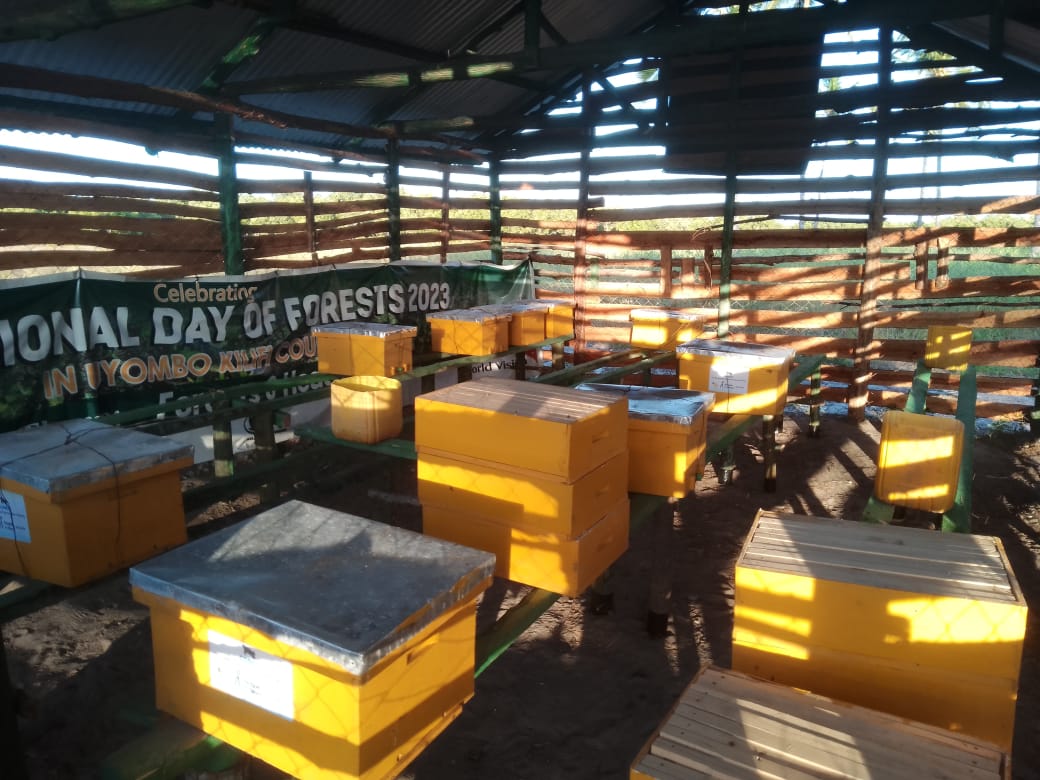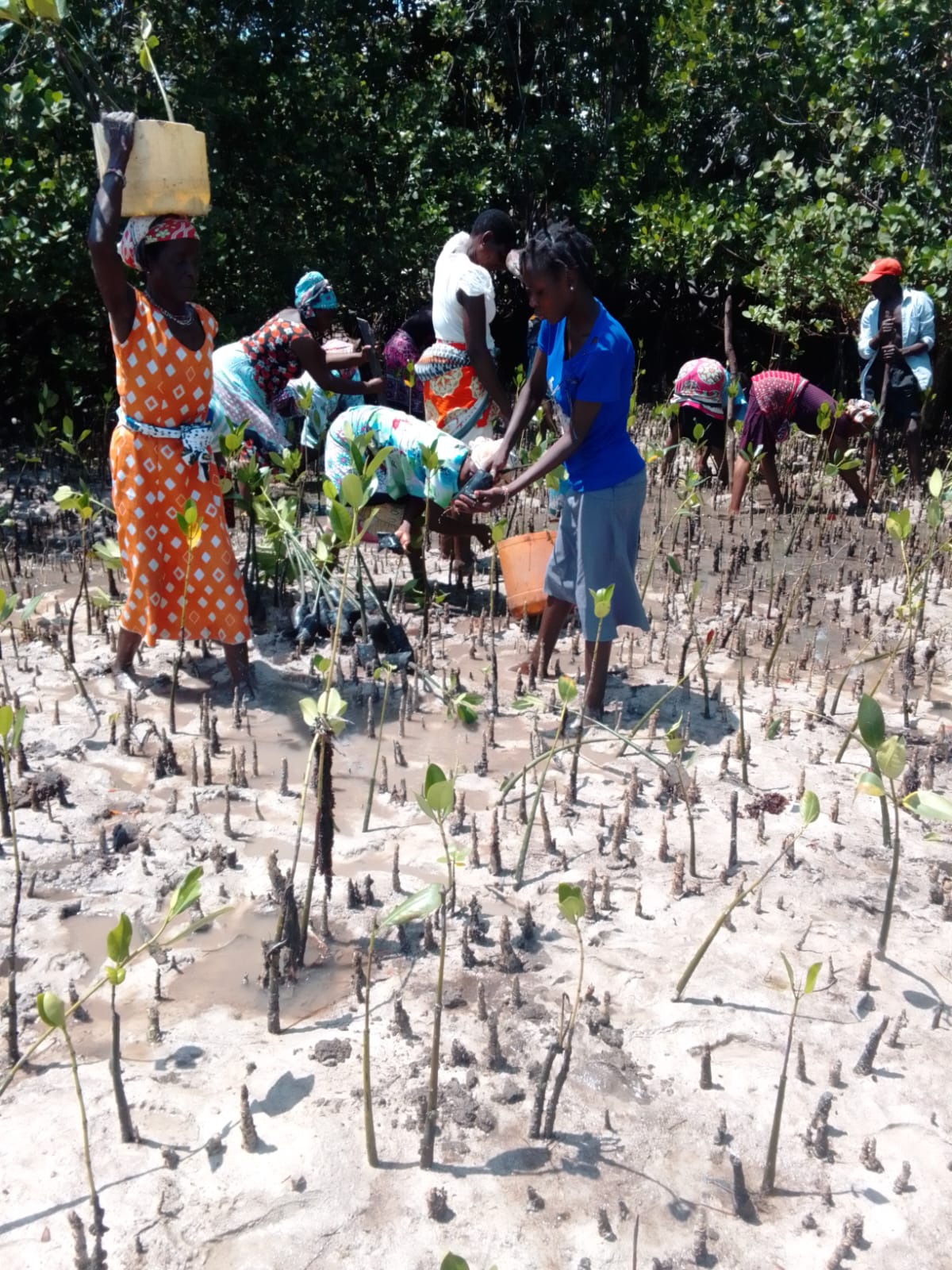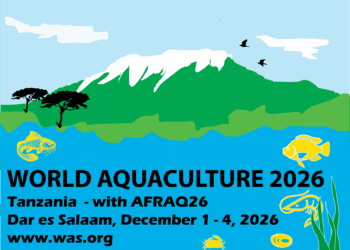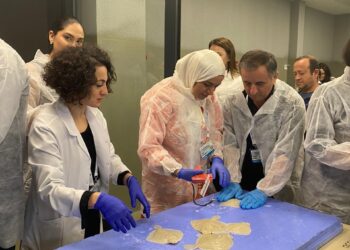Uyombo Community Group’s journey to mangrove conservation success in Kenya – Situated amidst the landscapes in Kilifi County, Kenya the Uyombo community stands as a beacon of resilience, unity, and empowerment. Boasting a dedicated membership of thirty, the majority of whom are women, the close-knit group has forged a path of strength and shared commitment to build a bright future for themselves and their families. However, being a fisher folk community, it was interesting to know why they focused so much on the protection of natural surroundings instead of fishing.
Watamu Marine National Park and Natural Reserve is in the area of Mida Creek, where is located the small village of Uyombo.
The area is characterized by an important place for biodiversity one could mention its tidal mud flats with fringing mangrove swamps, coral reefs, and sea-grass beds, as well the presence of marine mammals and sea turtles on the coastal area.
The beauty of the region has attracted mass tourism flow making the neighbor places like Malindi and Watamu known globally. Mass tourism has impacted deeply the area (e.g., faulty waste management and seabed depredation) and it has caused the overexploitation of natural resources (e.g., freshwater, seafood and mangrove timber). Despite this, local communities make their living thanks to the mass tourism activities, such as boat trips, water sports, and above all fishing integrated to agriculture.

Meet Edward Litole, a senior member of Uyombo conservation group, who answered our questions with interesting statements:
1. Why conservation?
‘’I grew up knowing fishing as a way of making a living. Uyombo community mostly depended on fishing as a means of sustenance ever since. We could make thousands of Kg of fish catch which we could sell to sustain our families. The fish catch started going down and life became unbearable. We started receiving different groups and individuals coming in and trying to rally the community to do the conservation of mangroves. This is when I knew about conservation’’.
2. What was Happening to Mangroves?
‘’Oh mangroves, from the sensitization we received we were informed the deforestation of mangroves is part of the cause of the declining fish catch. They were being cut for various uses such as building, making charcoal fuel, and clearing for space’’.
In Uyombo, the scars of massive mangrove degradation exposed the vulnerable community to the unforgiving forces of nature. As the dense mangrove forests dwindled, so did the protective barrier they once provided against the rising sea levels, leaving the community exposed to the relentless encroachment of the ocean’s embrace.
The repercussions were felt beyond the shores, as dwindling fish stocks left fishermen struggling to make ends meet, plunging families deep into the grip of poverty. Yet, amidst the turmoil a glimmer of hope emerged as the community rallied together, determined to reclaim their future and restore the once-thriving surrounding natural ecosystem.
3. Has the conservation journey been of any benefit?
‘’Though it has taken some time and effort, we have started to see the benefits, and it’s quite encouraging. Along with the conservation of mangroves we have managed to start a bee-keeping initiative within the mangrove ecosystem. It’s an initiative that is indeed paying off because we are selling our honey at ksh.1400 per liter. An income that is helping us for sustenance and also paying school fees for our children.
Having bees in our mangrove ecosystem is also helping in terms of controlling the rampant deforestation that has been happening in this area. This is an initiative we look forward to expanding further with the support of the well-wishers.
Emerging as from a long and arduous battle against the devastating impacts of climate change due to rampant mangrove deforestation in the area, the resilient Uyombo community stands tall as a testament to the power of perseverance and conservation.
After a decade of tireless effort and unwavering commitment to their natural surroundings, the community now reaps the sweet fruits of their labor. Celebrating a bounty of benefits from their daily mangrove conservation efforts and innovative bee-keeping initiatives, the Uyombo has transformed their fortunes, securing vital support for their daily livelihoods, businesses, and the education of their children.
Each jar of golden-hued honey harvested from their thriving hives is priced at Ksh. 1400 per liter (almost 10 Euros per liter), the Uyombo community not only sustains their property but also stands as guardians of their environment, ensuring a legacy of abundance for generations to come.
4. With your experience in conservation now, what advice would you give other conservation groups and young generations out there?
‘’To all conservation groups and youths out there, my advice concerning conservation is always simple, the world is an inherited resource that we share. For our well-being, we need to come up and collectively conserve these natural treasures. It’s through this we will be able to defeat this climate change issue.

Uyombo Community Group’s journey to mangrove conservation success in Kenya








